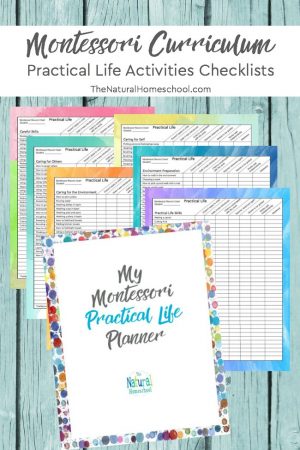A quote from the book titled Positive Discipline hits the nail in the head for us as parents.
It says, “The very same qualities we want for our children as adults can make life challenging when they’re young.”
It is very hard to deal with our children, especially with all of the major developments they are going through in their short lives.
These rapid developments take everyone into a whirlwind journey and have made the task of raising children a very difficult one.
We feel so much pressure, not only to raise them, but now, some of us also have the huge burden of educating them at home.
We strive all the time to transform them into an acceptable social person who affects the community in a positive way and is influenced by it, hopefully, also in a positive way.
There is absolutely no doubt in my mind that the environment around children has a big factor in raising a child the right way.
The key role in the process of rearing them is for parents, of course.
In this post, I will be discussing some tips to dealing with difficult children.
I will be sharing tips to improving a difficult personality in your child.

Successful home environment, Montessori activities and toning down power struggles are closely related to our ability as parents to know the child’s personality.
But let’s go a step further.
We must also understand this personality.
This makes it a lot easier to deal with your child, where each child has a unique personality, with its own needs and wants.
Let me show you the characteristics of some children with difficult personalities to get to know them and to be able to deal with them more easily the Montessori way.
Ready to learn about some personality traits that need improvement?
Difficult Personality: Stubborn child
Child stubbornness is, in all honesty, an innocent, subconscious behavior.
A strong willed kid is not necessarily a personality disorder.
It is most likely an age thing. Why?
What the child really wants above anything else, whether they know it or not, is to prove themselves.
The child is an independent being with preferences and opinions that are contrary to the opinions imposed on them by others.
In this case, you should not use force with your child and do not be stubborn with him.
Always keep in mind that the child learns everything from the parents.
You should not impose on him everything you want at once and give him some choices that are acceptable in getting to the same goal, but maybe in different forms.
That way, you prove to your child that they have the freedom to choose, but in fact it remains your choice.

Actionable steps:
1 Acknowledge her personality and understand where your personality clashes with hers.
2 Work on your relationship to polish those clashes.
Try to focus on removing that endless friction.
Strengthen your relationship.
3 Give the child 2 choices in everything in her life, so she feels she has control.
For example, find 2 outfits that are acceptable for her to wear and give her the choice.
For breakfast, choose 2 acceptable items and let her choose.
For Montessori, give her 2 options to learn about and let her choose.
If she is pushing back on the imitating you or waiting for your Montessori Method lesson presentation, let her choose one of your two options.
Sit down across from her on the child sized table and chairs and focus on the Montessori approach.
As she tinkers with it, just talk her through the work, as if you were giving her the lesson presentation, even if she is not doing it the right way.
Some children aren’t teachable in the usual sense and we need to give them that space.
So, don’t give up. You need to keep talking to the strong willed child as she is doing the work.
She will be listening and will eventually do it right.
Watch this training to help you further!
Difficult Personality: Selfish Child
I call this selfish behavior a double-edged sword.
If your child is selfish, this is the result of being very pampered (loved on too much) or neglect in specific ways.
This is the double-edged sword that makes us feel like that there is no winning.
But there is a way with Montessori principles and Montessori materials.
The child acts selfish all the time or in specific instances.
Let’s talk about this type of personality and I will give you 3 actionable steps.
He’s a selfish person who only loves himself, and he doesn’t want to give anything to others, and this selfishness can be caused by neglect.
If a child feels neglected by his parents, he is selfish in bringing emotions from everyone around him, so you have to boost his self-confidence and love for others.
Now, do understand that neglect doesn’t mean that you don’t feed them or give them their needs to live.
I need to stress and clarify that I am talking about neglect to give into their wants.
For example, technology. The child will feel neglected if they don’t get their way.

Actionable steps:
1 Be present with your child. Give your child undivided attention.
Even if you are splitting your time between your two children (or more), whenever they get you, they MUST know that you are there, like really there.
2 Get creative in your praise. Boost your child’s self-esteem WITHOUT the reward and punishment.
For example, instead of using the typical “good girl or good boy” when they do something right, you can ask them for help and say that you really appreciate how well they do xyz.
3 Make a list of things the child can do that will gently help her step away from the selfishness.
For example, more chores for everyone, serving others, acts of service for family, friends, community, etc.
Watch this training to help you further!
Difficult Personality: Negative child
There’s no doubt that negativity is an unwanted trait.
I think we can all agree wit that sentiment.
It is detrimental to the child and everyone around them.
So, in case your child is negative and doesn’t care about those around him or the things going on around him, you have to pay attention to this weakness.
Be sure to not neglect it because bad habits become bad routines and bad routines become bad behaviors and bad behaviors become bad lifestyles.
The behavior of your child is not changed on its own, but you always have to guide your child to what’s right.
Actionable steps:
1 You have to involve him in everything with you.
Like with the selfishness point, let him help you with things at home, always share him in all your life things so he do the same with you.
2 Have an “I am thankful for” game ready.
It can be as simple as a discussion before a meal, before bed, first thing in the morning or it can be a craft where you add one thing every day.
You can also make a list on a poster on the wall and add more daily.
Make it a routine as focusing on the good and positive over the bad can really help your child shift that negative mindset.
3 Talk to your child constantly and don’t neglect them.
Strengthen the bond between you and your child by creating a special tradition that only the two of you are a part of.
Make it simple, doable and positive.
Watch this training to help you further!
Additional Tips in General:
1 Reduce the child’s relationship with television and other technologies.
Technology shifts the child’s brain from being actively engaged to passive.
It goes from an exploring to “entertain me” mentality.
2 Define your child’s tasks, chores or other contributions in a visual form for them.
Being able to complete them and check them off or mark them as done can bring a sense of belonging, a sense of satisfaction and a real connection to their value and usefulness as individuals.
Make a poster, a board, a chore chart, etc to keep visual track.
3 Nurture your child’s talents and put them to good use.
Notice their strengths and provide opportunities for them to grow them.
You need to be open-minded as talents may look completely different for children.
You might notice that one child is especially sweet and caring to animals.
Another child might be really good at cooking or baking.
Another child might be talented in playing sports or musical instruments.
Maybe they are good at teaching something or at learning about things.
In Conclusion
In all seriousness, I am not a parenting coach or a specialist.
I am coming to you from my many years of experience in teaching, parenting and The Montessori Philosophy.
Whether you are doing Montessori at home, a Montessori school or homeschooling, I hope that this set of ideas will guide you in the right direction in helping your child deal with a difficult personality the Montessori way.
____________________________________________________________________________________________ ____________________________________________________________________________________________
 Sale!
Sale!
Work with Me! Personalized Coaching Sessions (Montessori & Homeschool)
$75.00 $50.00
Do you need homeschool or Montessori at home coaching?
We customize a package that will help YOU the most, but this is our most popular package:
Take advantage of my 15 years of experience in the Montessori philosophy and 10 years of homeschooling.
1 A 30-minute video (or phone) call via Zoom for a 100% personalized “in-person” coaching
It will be recorded and the link will be sent via email within 24 hours for further review.
Once you purchase the coaching session HERE, I will contact you to set up a time that works for both of us.
2 An email prior to coaching call detailing what questions, concerns, issues need to be addressed.
This helps with maximizing face-to-face time for actual practical implementation tips.
3 Any prior recommendations from my online shop (ebooks, etc,) are included
4 A follow-up email within 24 hours of the video call, detailing what was discussed, steps to take, any additional recommendations from my online shop (again, also included in the package).
5 A second follow-up email/contact 1-2 weeks after the video coaching call to see how client is progressing and to see if another video call needs to be scheduled
















Leave a Reply